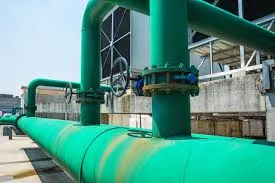
-
 Afrikaans
Afrikaans -
 Albanian
Albanian -
 Amharic
Amharic -
 Arabic
Arabic -
 Armenian
Armenian -
 Azerbaijani
Azerbaijani -
 Basque
Basque -
 Belarusian
Belarusian -
 Bengali
Bengali -
 Bosnian
Bosnian -
 Bulgarian
Bulgarian -
 Catalan
Catalan -
 Cebuano
Cebuano -
 China
China -
 China (Taiwan)
China (Taiwan) -
 Corsican
Corsican -
 Croatian
Croatian -
 Czech
Czech -
 Danish
Danish -
 Dutch
Dutch -
 English
English -
 Esperanto
Esperanto -
 Estonian
Estonian -
 Finnish
Finnish -
 French
French -
 Frisian
Frisian -
 Galician
Galician -
 Georgian
Georgian -
 German
German -
 Greek
Greek -
 Gujarati
Gujarati -
 Haitian Creole
Haitian Creole -
 hausa
hausa -
 hawaiian
hawaiian -
 Hebrew
Hebrew -
 Hindi
Hindi -
 Miao
Miao -
 Hungarian
Hungarian -
 Icelandic
Icelandic -
 igbo
igbo -
 Indonesian
Indonesian -
 irish
irish -
 Italian
Italian -
 Japanese
Japanese -
 Javanese
Javanese -
 Kannada
Kannada -
 kazakh
kazakh -
 Khmer
Khmer -
 Rwandese
Rwandese -
 Korean
Korean -
 Kurdish
Kurdish -
 Kyrgyz
Kyrgyz -
 Lao
Lao -
 Latin
Latin -
 Latvian
Latvian -
 Lithuanian
Lithuanian -
 Luxembourgish
Luxembourgish -
 Macedonian
Macedonian -
 Malgashi
Malgashi -
 Malay
Malay -
 Malayalam
Malayalam -
 Maltese
Maltese -
 Maori
Maori -
 Marathi
Marathi -
 Mongolian
Mongolian -
 Myanmar
Myanmar -
 Nepali
Nepali -
 Norwegian
Norwegian -
 Norwegian
Norwegian -
 Occitan
Occitan -
 Pashto
Pashto -
 Persian
Persian -
 Polish
Polish -
 Portuguese
Portuguese -
 Punjabi
Punjabi -
 Romanian
Romanian -
 Russian
Russian -
 Samoan
Samoan -
 Scottish Gaelic
Scottish Gaelic -
 Serbian
Serbian -
 Sesotho
Sesotho -
 Shona
Shona -
 Sindhi
Sindhi -
 Sinhala
Sinhala -
 Slovak
Slovak -
 Slovenian
Slovenian -
 Somali
Somali -
 Spanish
Spanish -
 Sundanese
Sundanese -
 Swahili
Swahili -
 Swedish
Swedish -
 Tagalog
Tagalog -
 Tajik
Tajik -
 Tamil
Tamil -
 Tatar
Tatar -
 Telugu
Telugu -
 Thai
Thai -
 Turkish
Turkish -
 Turkmen
Turkmen -
 Ukrainian
Ukrainian -
 Urdu
Urdu -
 Uighur
Uighur -
 Uzbek
Uzbek -
 Vietnamese
Vietnamese -
 Welsh
Welsh -
 Bantu
Bantu -
 Yiddish
Yiddish -
 Yoruba
Yoruba -
 Zulu
Zulu
fiberglass reinforced plastic pipe
The Advantages and Applications of Fiberglass Reinforced Plastic Pipe
Fiberglass reinforced plastic (FRP) pipe has emerged as a revolutionary material in various industries, thanks to its unique properties and advantages over traditional piping systems. As a composite material, FRP combines glass fibers with a resin matrix, resulting in a lightweight yet exceptionally strong and durable product. This article explores the key benefits and applications of FRP pipes that make them a preferred choice in numerous sectors.
One of the most significant advantages of FRP pipes is their corrosion resistance. Unlike metal pipes, FRP does not rust or corrode when exposed to harsh environments, chemicals, or moisture. This characteristic makes FRP an ideal option for industries such as chemical processing, wastewater management, and oil and gas, where pipes are often subjected to aggressive substances. The longevity of FRP systems significantly reduces maintenance costs and downtime, providing a cost-effective solution in the long run.
The Advantages and Applications of Fiberglass Reinforced Plastic Pipe
Another notable benefit of FRP pipes is their ability to withstand extreme temperatures. They maintain their structural integrity under both high and low temperature conditions, making them suitable for a vast range of applications. In industries such as power generation and marine engineering, where temperature fluctuations can be drastic, FRP pipes provide reliable performance without risk of failure.
fiberglass reinforced plastic pipe

In addition to performance advantages, FRP pipes are also customizable. Manufacturers can tailor the properties of the composite material to meet specific requirements, such as varying thicknesses or increasing the resistance to particular chemicals. This adaptability allows for specialized solutions that cater to the unique needs of different industries, enhancing the overall efficiency of the piping system.
Moreover, the smooth inner surface of FRP pipes results in lower friction losses, improving fluid flow and reducing energy consumption in pumping systems. This efficiency is particularly beneficial for applications in water treatment and irrigation, where conserving energy is essential for sustainability.
The applications of FRP pipes span a wide range of industries. From use in municipal water systems and sewage treatment to oil refineries and chemical plants, the versatility of FRP makes it an attractive alternative to conventional piping materials. As industries continue to seek more sustainable and efficient solutions, FRP pipes are poised to play a crucial role in the development of modern infrastructure.
In conclusion, fiberglass reinforced plastic pipes offer a combination of durability, lightweight design, corrosion resistance, and versatility that positions them as an ideal choice across various applications. As industries evolve and demands for innovative materials increase, FRP piping systems are likely to remain at the forefront of technological advancements, providing reliable solutions for a myriad of challenges.









